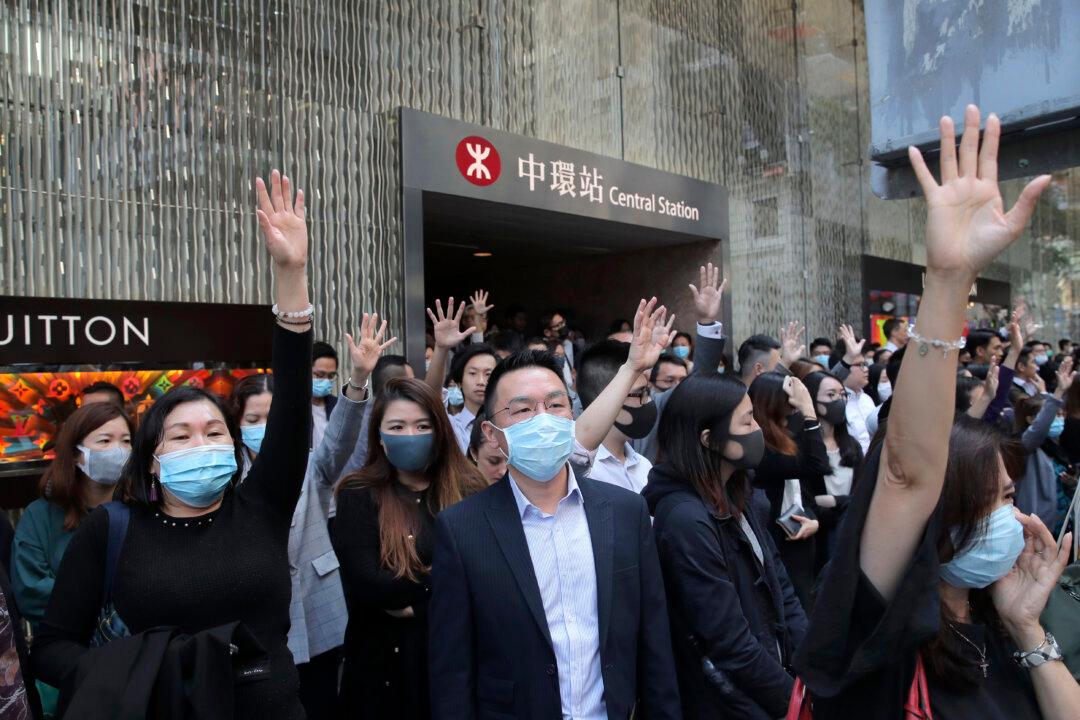The Chinese regime pledged to take measures to retaliate immediately if a U.S. bill supporting Hong Kong protesters is signed into law.
Since Hong Kong reverted to Chinese rule in 1997, under the express guarantee that its autonomy be preserved, the United States has dealt with the city as a separate entity from mainland China in matters of trade, investment, and immigration.
Beijing’s Claims
China’s foreign ministry spokesperson, in a Nov. 20 press release, accused the United States of being “blinded” to the wellbeing of Hongkongers.“This act neglects facts and truth, applies double standards, and blatantly interferes in Hong Kong affairs and China’s other internal affairs,” Geng Shuang said.
Geng called on Washington to “immediately take measures to prevent this act from becoming law.” And if the United States does not stop “interfering” in Hong Kong, Geng warned that “negative consequences will boomerang on itself” and China would have to take “strong countermeasures to defend our national sovereignty, security, and development interests.”
Meanwhile, the Hong Kong Liaison Office, the representative agency of Beijing located in Hong Kong, said the regime “must take strong measures to resolutely fight back.”
The statement follows the Chinese Communist Party’s (CCP) consistent narrative that the Hong Kong protests are fomented by foreign countries.
Yang Guang, spokesperson for the Hong Kong and Macau Affairs Office—Beijing’s highest office for managing the affairs of the two former European colonies—accused U.S. lawmakers of “openly supporting rioters” in Hong Kong, according to a press release, using its typical language to describe protesters.
The Hong Kong office of China’s foreign ministry, the rubber-stamp legislature’s Foreign Affairs Committee, and the Chinese People’s Political Consultative Conference Foreign Affairs Committee also published statements with similar harsh wording. The latter is a political advisory body.
Furthermore, Chinese deputy foreign minister Ma Zhaoxu summoned William Klein, the U.S. embassy’s minister counselor for political affairs, to voice “strong opposition” to the bill on Nov. 20, according to a press release.
Voices From US
Meanwhile, U.S. lawmakers saw the legislation as a key measure to censure the Chinese regime.Sen. James Risch (R-Idaho), who also chairs the Senate foreign relations committee, said in a statement: “Passing this legislation is an important step forward in holding the Chinese Communist Party accountable for its erosion of Hong Kong’s autonomy and its repression of fundamental freedoms.”
Stating that the Senate has taken a “momentous step” in standing up for democracy and human rights around the world, Sen. Bob Menendez (D-N.J.) called on Hong Kong authorities to “address the democratic desire of the Hong Kong people—including forming an independent commission to investigate police violence.”
Chu added that both the Senate and House versions of the bill “contain the necessary tools and ingredients for a more robust U.S. defense of Hong Kong’s autonomy and human rights.”





